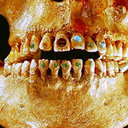In vitro and in vivo anti-malarial activity of Boerhavia elegans and Solanum surattense.
Keywords
Abstract
BACKGROUND
There is an urgent need to identify new anti-malarial drug targets for both prophylaxis and chemotherapy, due to the increasing problem of drug resistance to malaria parasites. In the present study, the aim was to discover novel, effective plant-based extracts for the activity against malaria.
METHODS
Ten plants found in Iran were selected by ethnobotanical survey of medicinal plants. The crude ethanolic extracts were tested for in vitro anti-plasmodial activity against two strains of Plasmodium falciparum: K1 (chloroquine-resistant strain) and CY27 (chloroquine-sensitive strain), using the parasite lactate dehydrogenase (pLDH) assay. The anti-plasmodial activity of the extracts was also assessed in the 4-day suppressive anti-malarial assay in mice inoculated with Plasmodium berghei (ANKA strain). Crude ethanolic extracts showed good anti-plasmodial activity were further fractionated by partitioning in water and dichloromethane.
RESULTS
Of 10 plant species assayed, three species: Boerhavia elegans (Choisy), Solanum surattense (Burm.f.) and Prosopis juliflora (Sw.) showed promising anti-plasmodial activity in vitro (IC50 < or = 50 microg/ml) and in vivo with no toxicity. The dichloromethane fraction of three extracts revealed stronger anti-plasmodial activity than the total extracts.
CONCLUSIONS
Anti-plasmodial activities of extracts of B. elegans and S. surattense are reported for the first time.


